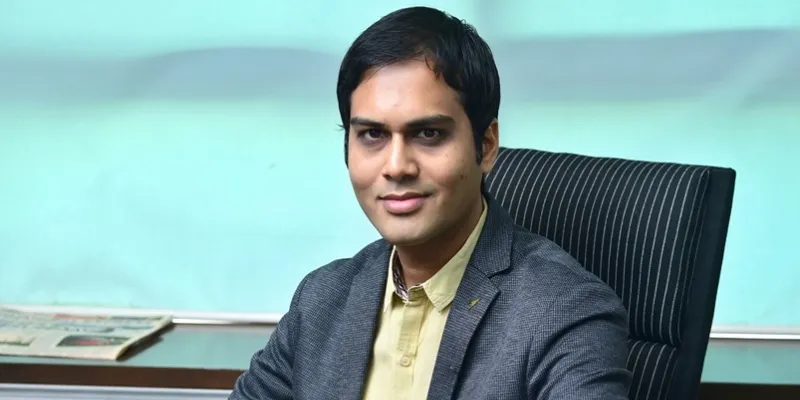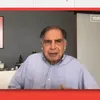Right now is not the time to judge people but to help them: Lendingkart Co-founder and CEO
Harshvardhan Lunia, CEO and Co-founder of Lendingkart Technologies, elucidates his learning experiences from the COVID-19 crisis and the impact on MSMEs.
Access to finance and credit is one of the most towering challenges for Indian micro, small and medium enterprises. With COVID-19 bringing several predicaments to the ecosystem, the lending business has also gone for a toss.

Harshvardhan Lunia, CEO and Co-founder of Lendingkart Technologies.
Right now, the big question the MSMEs face is how to ensure financial inclusion so that they can meet the capital requirements at a time when the demand and supply chains have taken a big hit.
In a conversation with YourStory as part of the series 'Money Matters with Shradha Sharma', Harshvardhan Lunia, CEO and Co-founder of Technologies, elucidated his learning experiences from the crisis and how his business has been coping during these unprecedented times.
Lendingkart is an Ahmedabad-based digital lending platform for small and medium businesses.
Plan the unexpected
Harshvardhan said that pains and trials are a part of every entrepreneur’s business journey, but currently, they are focusing on surviving the crisis. He said, “There are people who have to worry about just one business but we have to worry about multiple businesses who are our partners.”
He explained that the beauty about the lending business is that there is never a dearth of demand, however, he also observed that the demand right now is mixed.
He added “People who want money to pay taxes and salaries, and those who want to be on the good side of the law have agreed to take loans, but there are also those who don’t want to take any money.”
Harshvardhan also talked about how businesses lack a crisis management strategy which puts them in a vulnerable position when a catastrophe occurs. “The reaction is too much. This is because we don't plan the unexpected. And when it (the unexpected) happens, we are overwhelmed.”
He added that one of the things he learnt from COVID-19 is “how to plan the unexpected.”
Watch the full video interview below:
Good policies, poor execution
The past few months saw the Centre announcing some big reliefs in the form of stimulus packages for MSMEs. This also includes Rs 3 lakh crore collateral-free loan for small businesses, revising the definition of MSMEs to offer them greater benefits, clearing the pending dues of the sector from PSUs, and other undertakings.
Harshvardhan pointed out that while these schemes are good, the discrepancy in execution has created a big hole in the bag of opportunities. He said, “Government has announced a lot of stimulus packages but the penetration has to be deeper.”
He gave the example of when the moratorium was first announced by the government. He said, “The assumption was that we will give moratorium to everyone and we will also get moratorium from our lenders. But it did not happen this way and we and many other NBFCs had to struggle.”
He also noted that the presence of adequate cash saved them from during this time.

YourStory CEO and Founder Shradha Sharma in conversation with Harshvardhan Lunia, CEO and Co-founder of Lendingkart Technologies
Focus and communicate
The country boasts of 60 million micro, small, and medium enterprises (MSMEs), that contribute about 30 percent to India’s GDP, creating over 11 crore jobs.
Harshvardhan revealed that the business owners who come to them for loans are aged between 23-45 years. However, there is another category of business owners who are much larger in number and need to be catered to. “Hawkers, rickshawalas and people like them are the worst hit. Our clients are educated who are involved in the banking system.”
However, he added that right now is not a time to judge people but look at ways to help them. He also said that communicating within the organisation is also important.
He also said that the journey of an entrepreneur is never a linear one but staying focused will save him from a lot of trouble.
“Serve the right product to the customers. This way you can grow and build (your business),” he advised.
Edited by Kanishk Singh










